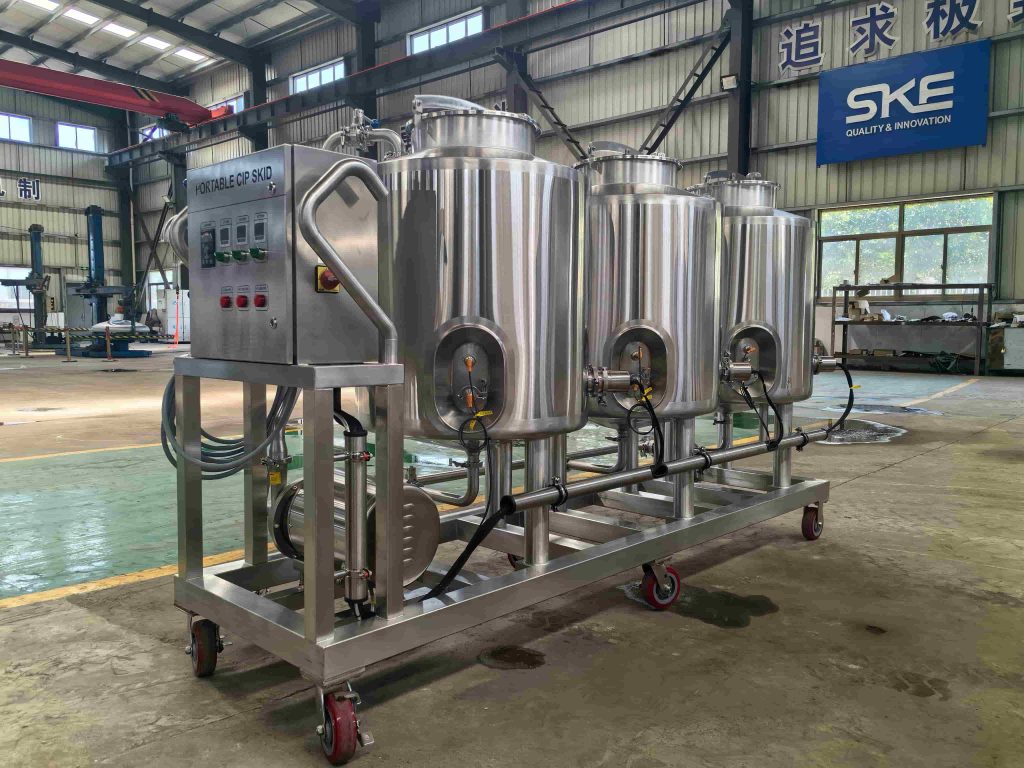Introduction
Automated CIP systems, or Clean-In-Place systems, have revolutionized the way companies handle sanitation in manufacturing environments. By eliminating the need to disassemble equipment for cleaning, these systems save time and labor costs while ensuring the utmost hygiene across processes. In this article, we will explore the key components and operational principles of automated CIP systems, and how SKE’s innovative products can enhance your cleaning efficiency.
Benefits of Automated CIP Systems
The primary advantage of automated CIP systems is their efficiency. They significantly reduce cleaning time and resources, allowing businesses to maximize production uptime. Moreover, these systems can lead to better sanitation compliance, ensuring that equipment is free from contaminants, which is critical in sectors such as food processing and pharmaceuticals. For instance, SKE’s CIP solutions are designed to provide consistent results, meeting industry standards and enhancing overall operational efficiency.
In addition, integrating an automated cleaning solution like those from SKE helps reduce water and chemical waste, making it a more sustainable option for businesses focused on reducing their environmental footprint.
How Automated CIP Systems Work
An automated CIP system works by circulating cleaning solutions through the equipment via a series of pumps and valves, allowing the solution to reach every necessary part of the machinery. The system typically includes a series of steps: pre-rinse, detergent circulation, rinse, and sanitizing. Automation ensures that each step is performed consistently and accurately, mitigating human error.
Devices such as sensors and controllers monitor the process, ensuring the correct concentration of chemicals and temperatures are maintained. This intelligent system is a hallmark of SKE’s engineering, where precision meets reliability.
Applications in Various Industries
Automated CIP systems are widely utilized in several industries, predominantly in food and beverage manufacturing, pharmaceuticals, and cosmetics. For example, breweries employ these systems to clean fermentation tanks without disrupting their operations. Similarly, dairy processors rely on automated CIP systems to maintain strict hygiene standards while maximizing efficiency.
With SKE’s tailored solutions, your business can achieve optimal cleaning results, ensuring your equipment functions properly and safely while reducing downtime.
Maintaining Your Automated CIP System
Regular maintenance of your automated CIP system is crucial for ensuring its efficiency and longevity. This includes routine inspections, checking for clogs in the system, and calibrating the sensors and pumps. SKE recommends conducting a comprehensive audit of your cleaning processes to identify any potential areas of improvement. With minimal upkeep, SKE’s systems are designed to have high reliability, and our support team is always available for additional assistance.
FAQs
What is an automated CIP system?
An automated CIP system is a cleaning system that allows for the cleaning of equipment without disassembly, ensuring thorough sanitation efficiently and effectively.
How does an automated CIP system improve efficiency?
It improves efficiency by reducing cleaning times, ensuring consistent sanitation, and minimizing labor costs through automation.
What industries can benefit from automated CIP systems?
Industries such as food and beverage, pharmaceuticals, and cosmetics can all benefit from automated CIP systems for better hygiene and operational efficiency.
Contact Us for More Information
If you are interested in integrating an automated CIP system for your operations, reach out to us:
- Facebook: SKE on Facebook
- Mailing Address: 123 SKE Avenue, Industrial City, SC 12345
- Email: info@skeequipment.com
Additionally, please fill out the contact form at the bottom of this page for bespoke inquiries!
”

